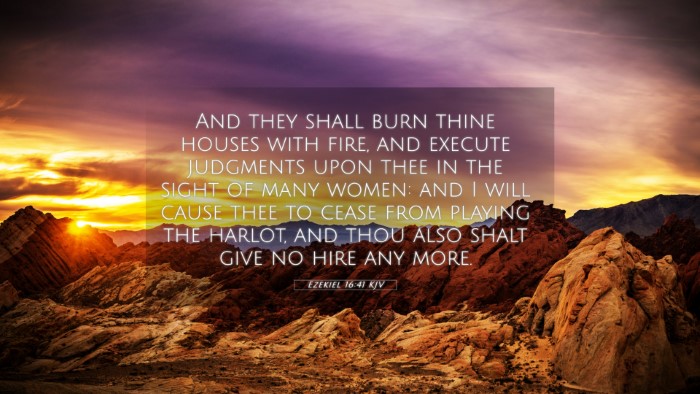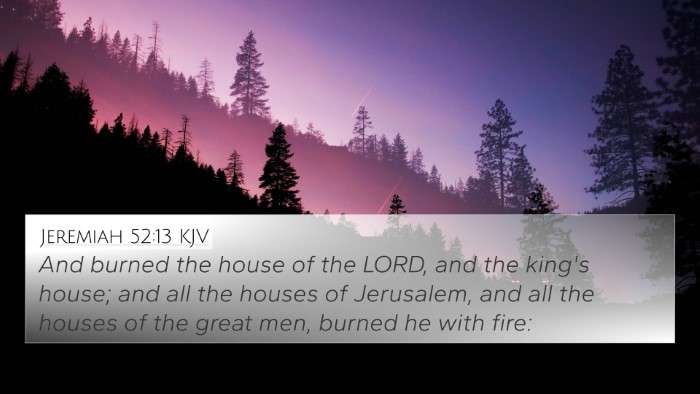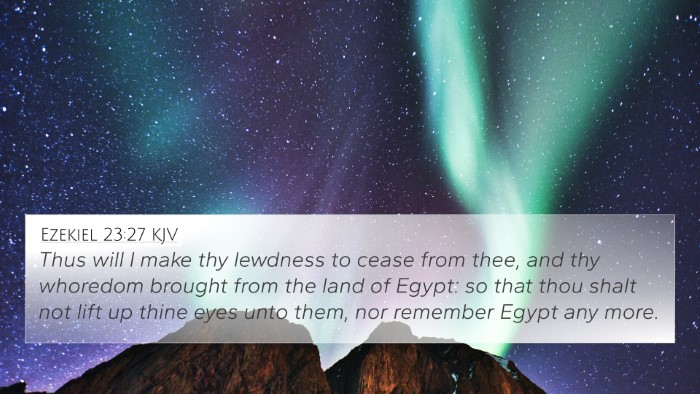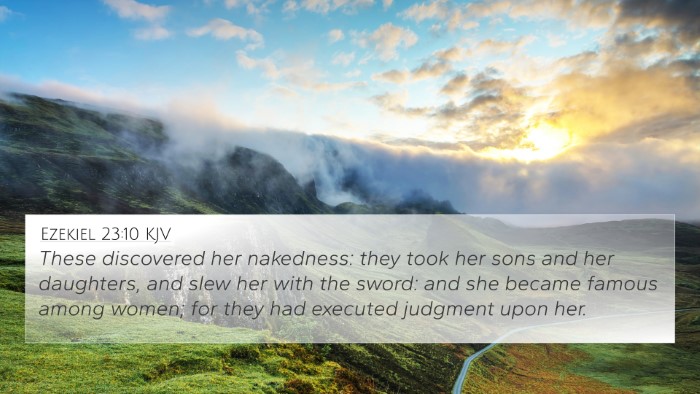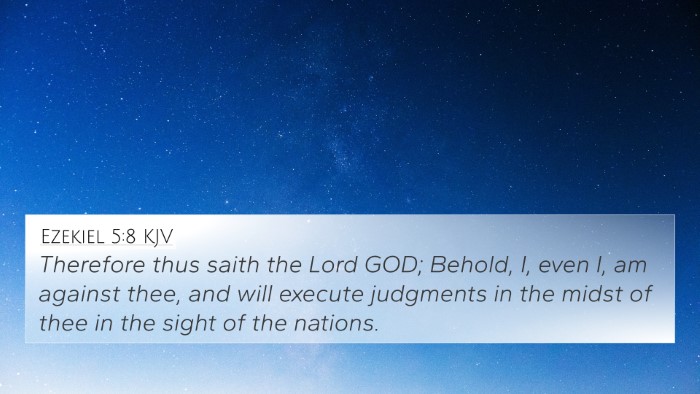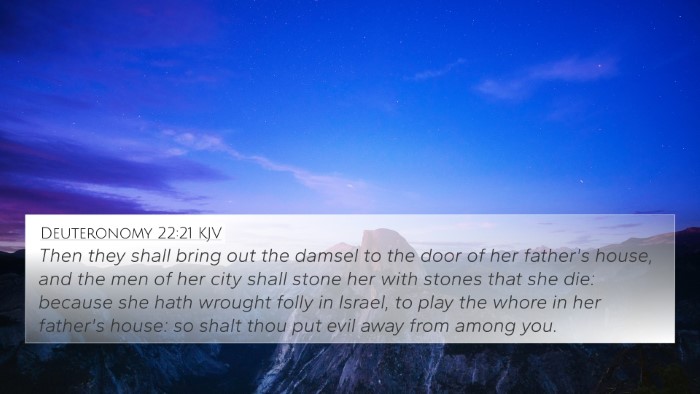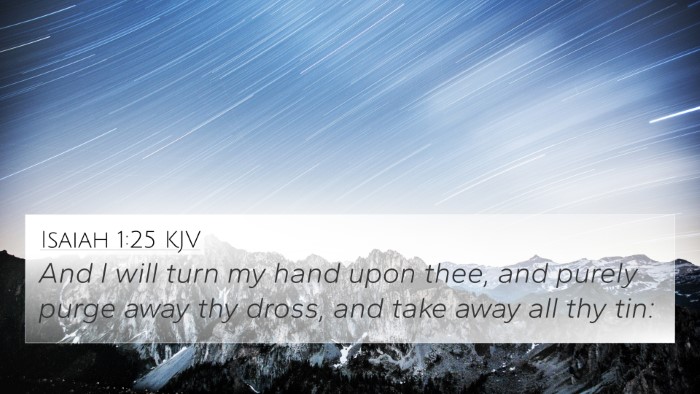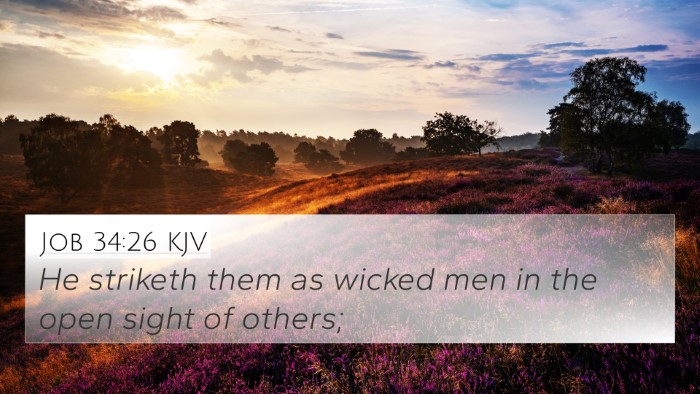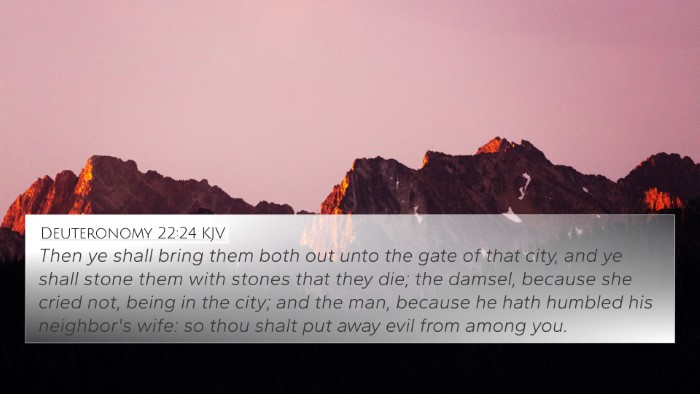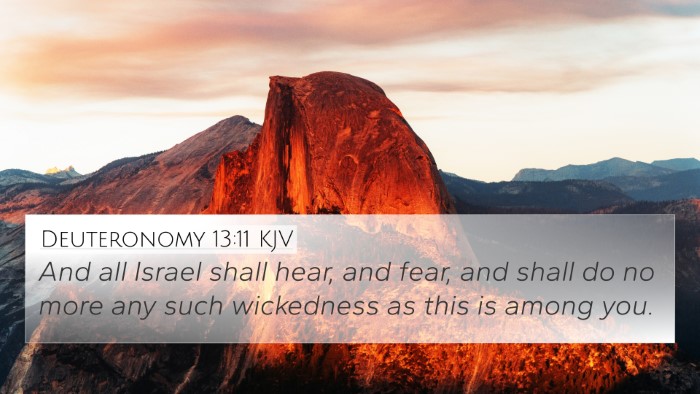Ezekiel 16:41 - Summary and Interpretation
Ezekiel 16:41 states: "And they shall burn thy houses with fire, and execute judgments upon thee in the sight of many women: and I will cause thee to cease from playing the harlot, and thou shalt no more give your gifts to your lovers." This verse reflects God's judgment against Jerusalem for its unfaithfulness and idolatry.
Meaning and Insights
This verse is part of a larger passage where God is addressing His people through the prophet Ezekiel, using the metaphor of unfaithfulness to illustrate their betrayal against Him.
1. The Consequence of Sin
Matthew Henry emphasizes that the burning of houses signifies the total destruction that comes as a consequence of unfaithfulness to God. Just as a harlot’s actions lead to her ruin, so too does sin lead to the collapse of one's spiritual state.
2. Public Execution of Judgment
Albert Barnes notes that the public nature of the judgment serves to demonstrate the seriousness of God’s wrath and the gravity of sin. This "sight of many women" indicates that such judgments serve as warnings to others.
3. Ceasing from Unfaithfulness
Adam Clarke interprets the phrase, "I will cause thee to cease from playing the harlot," as God’s commitment to eradicate idolatry. This part of the verse highlights the compassionate aspect of judgment, as God desires His people to return to true worship.
Cross-Referencing Biblical Texts
To fully grasp the implications of Ezekiel 16:41, a deeper exploration of related Bible verses is essential. Below are some pertinent cross-references:
- Jeremiah 7:20 - Discusses God's fierce anger against unfaithfulness.
- Hosea 2:2 - Uses similar metaphors of unfaithfulness and God’s call for repentance.
- Isaiah 47:14 - Speaks of the consumption of spiritual harlots.
- Revelation 17:16 - Symbolizes the destruction of the great whore, representing unfaithfulness.
- Ezekiel 23:48 - Discusses the judgment similar to that in chapter 16.
- Psalm 78:58 - Highlights Israel’s unfaithfulness and God’s anger.
- Isaiah 1:21 - Speaks of Jerusalem as a harlot, contrasting her former faithfulness with her current state.
Thematic Connections and Analysis
In studying Ezekiel 16:41, we can observe several key thematic connections through biblical cross-referencing:
- Idolatry and Its Consequences: The relationship between spiritual unfaithfulness and subsequent judgment is a recurring theme throughout the Bible.
- God's Judgment: Many scriptures depict God's judgment as a necessary response to sin, reinforcing the idea that unfaithfulness has dire consequences.
- Repentance and Restoration: The hope for repentance and restoration often follows the judgment, reflecting God’s desire for reconciliation.
Connecting Old and New Testament Themes
Understanding the concepts in Ezekiel can also be enhanced by exploring connections with New Testament teachings:
- Revelation 2:4-5 - Calls for the church to remember its first love, akin to the unfaithfulness illustrated in Ezekiel.
- Matthew 5:29-30 - Discusses the importance of removing what causes one to sin, aligning with the call to cease from idolatry.
Tools for Bible Cross-Referencing
For deeper studies and connections, various tools can assist in navigating cross-references:
- Bible concordances to find relevant verses.
- Bible reference resources that categorize verses by theme.
- Cross-reference guides for specific books or letters within the Bible.
Conclusion
Ezekiel 16:41 serves as a powerful reminder of God’s anger against sin and His call for return to faithfulness. By engaging with related scriptures and themes, believers can gain a deeper understanding of God's nature and their own spiritual journey.

